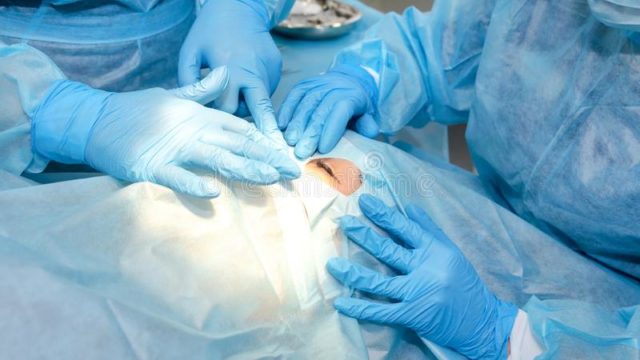The Federal Government on Friday in Abuja opened a training for eye health professionals nationwide on its Glaucoma Guidelines and Toolkit.
The National Coordinator of, the National Eye Health Programme, Federal Ministry of Health and Social Welfare, Dr Okolo Oteri said during the opening that “the guidelines are for programmatic and clinical management of glaucoma.”
Glaucoma is a group of eye diseases characterised by progressive optic neuropathy, with visual field loss.
Oteri said there is no cure for glaucoma, but early treatment can stop the damage and protect vision.
She added that “glaucoma is the leading cause of irreversible vision loss globally and in Nigeria, it is a debilitating disease with an earlier onset and a more severe course reported in persons with black history.
“The Nigeria Blindness and Vision Impairment Survey reported that 0.78 per cent of Nigerians of all ages are blind.
“Blindness increased significantly with illiteracy and age, with 1.13 million (4.2 per cent) Nigerians over 40 years blind.
“Glaucoma is the second most common cause of blindness, with a prevalence of five per cent, accounting for 16.7 per cent of the burden of blindness.
“However, only 5.6 per cent know they have the disease, while 20 per cent are already blind.”
The coordinator, however, noted that glaucoma is not a priority disease for the Vision 2020 initiative in lower and middle-income countries.
This, she said, is due to the high prevalence of other avoidable blinding diseases like cataracts, onchocerciasis, trachoma and childhood blindness, including Vitamin A deficiency.
She explained that despite the annual commemoration of World Glaucoma Day in March, the eye disease received low support from local and international donors and less effort to tackle it.
She suggested that “collective action, including integrated patient-focused care, is required to stem glaucoma, a chronic but treatable condition which requires lifelong treatment and follow-up.”
Oteri, who said the eye health promotion, blindness prevention, treatment and rehabilitative needs of patients with glaucoma are not being met, noted that a toolkit is expected to aid the management of the disease at the community level and in the facilities.
“So, we’re talking about secondary and tertiary facilities where we have specialists to manage glaucoma.
“Here, we are launching a training programme which will involve ophthalmologists and ultimately a simulated surgical training to ensure a team approach toward tackling glaucoma at our facilities.”
This, she said, would ensure improved outcomes for patients who already have glaucoma, to ensure that they maintain the function of vision throughout the rest of their lives.
A Consultant at the University of Abuja Teaching Hospital and a contributor to the guidelines, Dr Fatima Kyari said that the toolkit is for both the clinical and programmatic needs of patients.
She said “We have the clinical section on how we treat glaucoma clinically and the programmatic section where we develop glaucoma care teams.
“When we talk about care teams, it is not just about ophthalmologists, it’s also about other eye care workers and professionals such as optometrists, ophthalmic nurses and opticians.
“We also have sections that help us as eye care practitioners to engage patients, and we let them know what the disease is about and how they can participate in their own care together with the doctors.”
Kyari also said there is a public awareness section where they engage not only the public in terms of people who are likely to have glaucoma or are at risk of having the disease but also community leaders, government policymakers and even hospital managers.
She added that there is a section in the toolkit that guides the practitioner on how to engage people and talk to them about glaucoma and improve investments in eye health and glaucoma.
The guideline was officially launched in October 2023 by the First Lady, Mrs Oluremi Tinubu, alongside two other documents to enhance eye health in the country.
NAN



